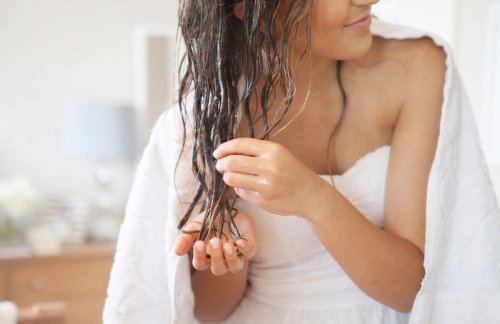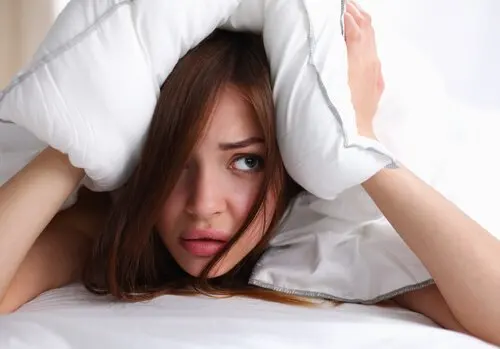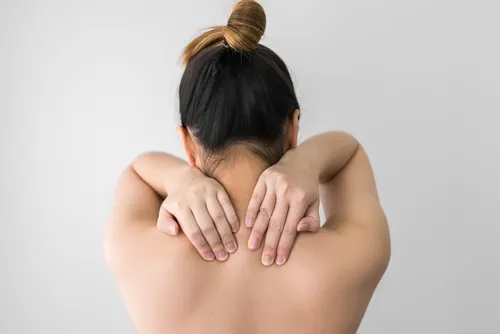8 Health Problems Caused by Sleeping with Wet Hair

Taking a shower before bedtime is a great way to help relax the body and achieve a better quality of sleep. It allows you to reduce muscle tension and stress left over from a tiring work day. However, the benefits don’t extend to sleeping with wet hair, since this can lead to the development of some health problems.
Although seemingly harmless, it can cause adverse reactions at the capillary level as well as in the muscles and the immune system. Many are unaware of these consequences. We want to share some of the possible negative effects so you can be sure to avoid them.
1. Sleeping with wet hair can cause headaches

Sleeping with wet hair can increase the number of severe headaches you get. This is because moisture can cause a sudden change in body temperature. Wrapping your hair in a towel can make the problem even worse as the moisture is retained for a longer period of time.
This affects blood circulation in the scalp and when tension increases, it can cause pain that can interrupt sleep.
2. Hair breakage
Do you worry about keeping your hair strong and healthy? In that case, uou should avoid washing your hair in the shower before bedtime as much as possible. This produces a serious weakening in the strands that, over time, increases the susceptibility to breakage and falling out.
See also: 3 Ways to Encourage Good Hair Growth
3. Skin infections
Sleeping with wet hair increases the risk of skin infections because microorganisms have the ideal environment to reproduce. Unlike when you wash your hair in the daytime, there isn’t enough time to let your hair dry naturally at night. The warmth of your bed then creates the perfect climate for fungi and bacteria to grow.
As a result, irritation and even fungal infections may appear on the scalp and the surrounding skin.
4. Itching and Swelling
Fungi that grow on the skin due to wet hair can cause uncomfortable itching and inflammation, even after your hair has dried. This can become a recurrent problem and often takes several days to disappear if not properly treated.
5. Allergies and colds
Changes in body temperature that occur when sleeping with wet hair may weaken the immune system. They can also trigger conditions such as allergies and colds. Moisture is retained for several hours, which causes your defense mechanisms to weaken, allowing some viruses and bacteria to attack.
6. Greasy hair
Sleeping with wet hair tends to increase excess grease and produce a sticky texture. This is due to the changes experienced by the sebaceous glands, which in turn leads to an imbalanced pH level in the scalp.
As a result, you’ll wake up with hair that has an unpleasant, tangled, and wrinkled appearance.
7. Muscle pain

Although this can be caused by multiple factors, you can’t rule out damp hair being a trigger. Changes in the temperature that the body generates can cause not only circulatory problems but also increase muscle spasms and tension.
All cited sources were thoroughly reviewed by our team to ensure their quality, reliability, currency, and validity. The bibliography of this article was considered reliable and of academic or scientific accuracy.
- Albers, L. N., Maley, A. M., & MacKelfresh, J. B. (2017). Blowing Bubbles: Dermoscopy of Bubble Hair. International Journal of Trichology. https://doi.org/10.4103/ijt.ijt_11_17
- Grimalt, R. (2007). A practical guide to scalp disorders. In Journal of Investigative Dermatology Symposium Proceedings. https://doi.org/10.1038/sj.jidsymp.5650048
- Kaya, Abdullah & Calışkan, Halil. (2012). Is wet hair in cold weather causes sinus headache and posterior eye pain? A possible mechanism through selective brain cooling system.. Medical hypotheses. 79. 10.1016/j.mehy.2012.08.017.
- Park, H. K., Ha, M. H., Park, S. G., Kim, M. N., Kim, B. J., & Kim, W. (2012). Characterization of the fungal microbiota (mycobiome) in healthy and dandruff-afflicted human scalps. PLoS ONE. https://doi.org/10.1371/journal.pone.0032847
This text is provided for informational purposes only and does not replace consultation with a professional. If in doubt, consult your specialist.








